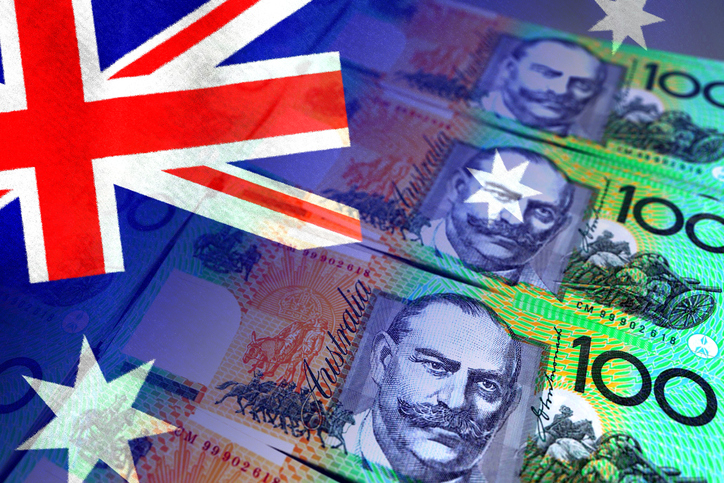Share market vulnerable as 2024 gains wiped out this month
But leading Australian economist says there are five reasons for investors to be optimistic about the future
A 291-point or 3.69 percent dive in the benchmark ASX 200 index over April has all but wiped out the Australian share market’s gains for 2024. There was a 140-point or 1.81 percent drop in the ASX 200 on Monday and a minor further fall yesterday. The Australian market has followed the US lead this month, with the S&P 500 also down significantly, losing 232 points or 4.42 percent since 1 April.
The catalysts include last week’s hotter-than-expected US inflation data. Although analysts think Australian inflation is unlikely to follow suit, stickier-than-expected inflation in the US may delay the first interest rate cut by the US Federal Reserve. As the US is the world’s largest economy, this may have implications for central bank decisions in other nations like Australia.
“ … uncertainty over when the Fed will start to cut rates has been increased by three worse than expected monthly CPI inflation results in a row …,” said AMP chief economist Dr Shane Oliver. “This has seen money market expectations for 0.25 percent rate cuts this year scaled back from seven starting in March this year to now less than two starting in September. And in Australia they have been scaled back from nearly three starting in June to no rate cut until late this year/early next.”
On top of that, Iran’s retaliatory strike on Israel and Israel’s insistence that a response will be forthcoming despite many Western nations’ objections have made investors nervous. If Iran were to become more involved in the ongoing war, this may have ramifications for oil prices.
“Another sharp spike in oil prices would be a threat to the economic outlook as it could boost inflation again … potentially resulting in higher than otherwise interest rates and act as a tax hike on consumers leaving less to spend on other things,” Dr Oliver said.
Also, in Australia, the pandemic savings buffers people have been using to cope with the cost of living crisis are being depleted and China’s weak property sector is impacting demand for iron ore. All of this makes shares vulnerable to a pullback amid stretched valuations and more trading volatility ahead, Dr Oliver said.
On balance though, Dr Oliver thinks an upward trend is likely to remain for shares. “From their lows last October, it has been relatively smooth sailing for shares – with US shares up 28 percent, global shares up 25 percent and Australian shares up 17 percent to recent highs.”Dr Oliver said the past few weeks have “seen a rough patch” but the share market is likely to continue its bull run.
Markets have been strong since November 2023 due to falling inflation and optimism that the interest rate cycle is at its peak. Many economists have expressed surprise that the jobs market in many Western countries has remained strong despite weaker economic conditions. Some are terming this “immaculate disinflation” because it goes against the traditional trend of many people losing jobs when economies slow down.
Dr Oliver says there are five reasons to be optimistic about the share market’s strength:
In this climate, Dr Oliver recommends that investors stick to an appropriate long-term investment strategy and accept that share market pullbacks are “healthy and normal”.
This stylish family home combines a classic palette and finishes with a flexible floorplan
Just 55 minutes from Sydney, make this your creative getaway located in the majestic Hawkesbury region.
Continued stagflation and cost of living pressures are causing couples to think twice about starting a family, new data has revealed, with long term impacts expected
Australia is in the midst of a ‘baby recession’ with preliminary estimates showing the number of births in 2023 fell by more than four percent to the lowest level since 2006, according to KPMG. The consultancy firm says this reflects the impact of cost-of-living pressures on the feasibility of younger Australians starting a family.
KPMG estimates that 289,100 babies were born in 2023. This compares to 300,684 babies in 2022 and 309,996 in 2021, according to the Australian Bureau of Statistics (ABS). KPMG urban economist Terry Rawnsley said weak economic growth often leads to a reduced number of births. In 2023, ABS data shows gross domestic product (GDP) fell to 1.5 percent. Despite the population growing by 2.5 percent in 2023, GDP on a per capita basis went into negative territory, down one percent over the 12 months.
“Birth rates provide insight into long-term population growth as well as the current confidence of Australian families,” said Mr Rawnsley. “We haven’t seen such a sharp drop in births in Australia since the period of economic stagflation in the 1970s, which coincided with the initial widespread adoption of the contraceptive pill.”
Mr Rawnsley said many Australian couples delayed starting a family while the pandemic played out in 2020. The number of births fell from 305,832 in 2019 to 294,369 in 2020. Then in 2021, strong employment and vast amounts of stimulus money, along with high household savings due to lockdowns, gave couples better financial means to have a baby. This led to a rebound in births.
However, the re-opening of the global economy in 2022 led to soaring inflation. By the start of 2023, the Australian consumer price index (CPI) had risen to its highest level since 1990 at 7.8 percent per annum. By that stage, the Reserve Bank had already commenced an aggressive rate-hiking strategy to fight inflation and had raised the cash rate every month between May and December 2022.
Five more rate hikes during 2023 put further pressure on couples with mortgages and put the brakes on family formation. “This combination of the pandemic and rapid economic changes explains the spike and subsequent sharp decline in birth rates we have observed over the past four years,” Mr Rawnsley said.
The impact of high costs of living on couples’ decision to have a baby is highlighted in births data for the capital cities. KPMG estimates there were 60,860 births in Sydney in 2023, down 8.6 percent from 2019. There were 56,270 births in Melbourne, down 7.3 percent. In Perth, there were 25,020 births, down 6 percent, while in Brisbane there were 30,250 births, down 4.3 percent. Canberra was the only capital city where there was no fall in the number of births in 2023 compared to 2019.
“CPI growth in Canberra has been slightly subdued compared to that in other major cities, and the economic outlook has remained strong,” Mr Rawnsley said. “This means families have not been hurting as much as those in other capital cities, and in turn, we’ve seen a stabilisation of births in the ACT.”
This stylish family home combines a classic palette and finishes with a flexible floorplan
Just 55 minutes from Sydney, make this your creative getaway located in the majestic Hawkesbury region.


















